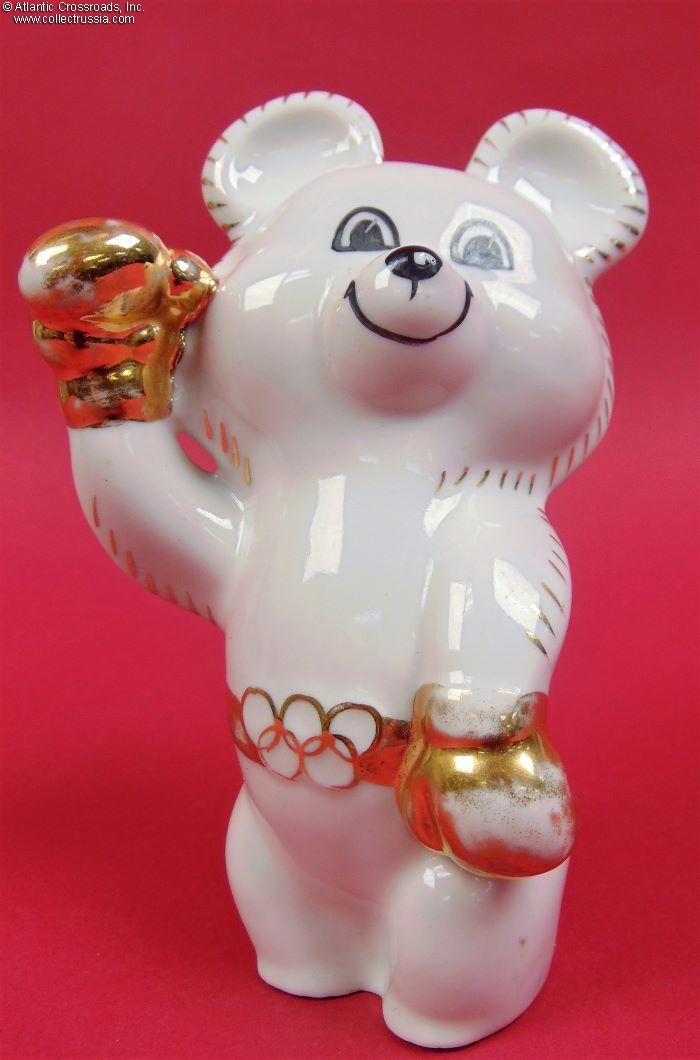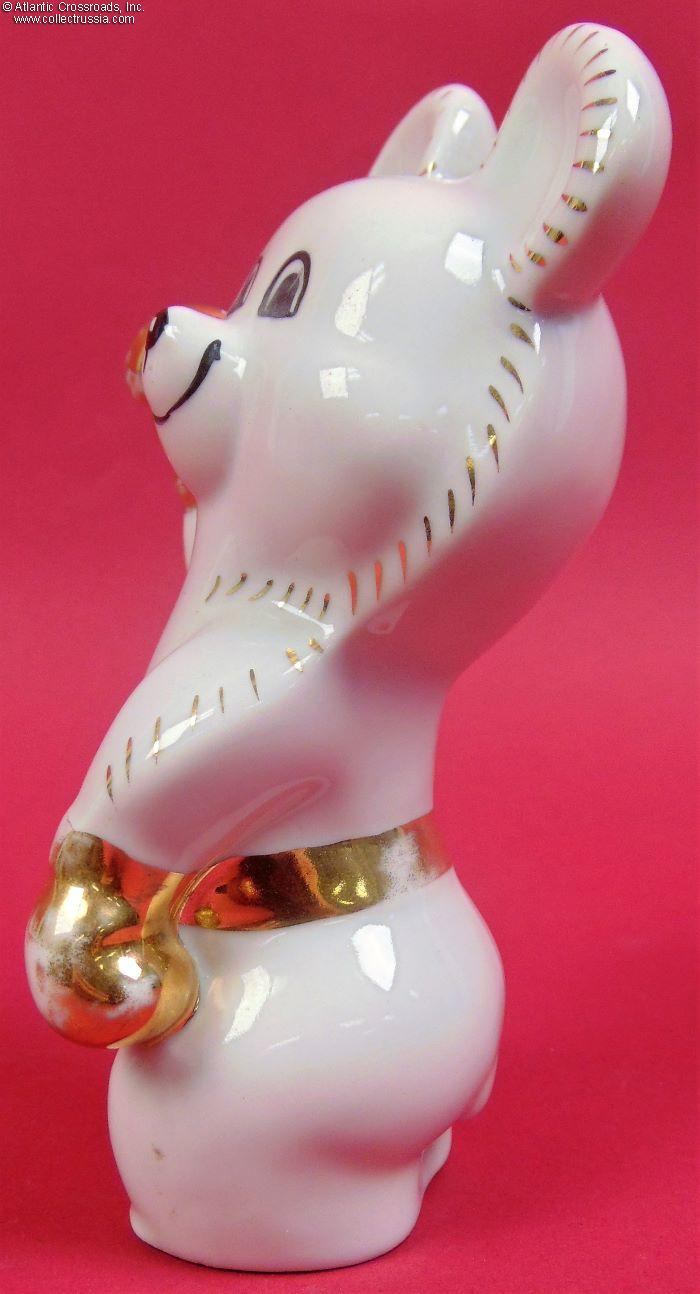
Porcelain bear figurine of Mishka, the official mascot of the 1980 Moscow Olympic Games, by Prokopyevsk Porcelain Factory, 1979-80.
This is a very rare and unusual figurine of the Moscow Olympics mascot, depicting the bear as a boxer. The posture of the figurine complies with the official image of the mascot but the entire "trimming" is different: white color, the gilt "stitching" along the contours of the bear's head and arms and, finally, the boxer gloves - representation of one kind of sports. The figurine stands approx. 5 ½" tall to its ear tips. "Dressed" in a golden belt with the golden buckle in the form of 5 joined rings, the symbol of Olympic Games. Maker marked on the bottom. This version of the logo of t
This is a very rare and unusual figurine of the Moscow Olympics mascot, depicting the bear as a boxer. The posture of the figurine complies with the official image of the mascot but the entire "trimming" is different: white color, the gilt "stitching" along the contours of the bear's head and arms and, finally, the boxer gloves - representation of one kind of sports. The figurine stands approx. 5 ½" tall to its ear tips. "Dressed" in a golden belt with the golden buckle in the form of 5 joined rings, the symbol of Olympic Games. Maker marked on the bottom. This version of the logo of the Prokopyevsk Porcelain Factory was in use from 1976 to to its closure in 2006 (fig. # 589 in Volume One of Marks on Soviet Porcelain, Faience, and Majolica, 1917-1991 by Nasonova et al).
In very good to excellent condition. There are spots on the gloves and on the belt where the gilt has rubbed off. This is quite common, unfortunately, in the cases where the layer of gilt is too thin to withstand a lot of manhandling. Other than that, there is no visible post-production damage or wear of any kind.
Prokopyevsk Porcelain Factory was established in 1973 to provide employement to the female population of Kemerovo Region and to meet the regional market's demand for artistic and utilitarian porcelain products. Equiped with Czech machinery, it quickly became the first large manufacturer of household utilitarian and artistic porcelain in Western Siberia. In the early post-Soviet 1990s, a number of economic difficulties cropped up leading to liquidation of the factory in 2006.
The 1980 summer Olympics in Moscow were the games of the largest boycott in the history of the Olympic movement. In response to the Soviet Union's invasion of Afghanistan in 1979, approximately 60 countries world-wide boycotted the games, led by the USA and its then president Jimmy Carter. Notably, a number of Western countries did not participate in the boycott. Among them were Sweden, Italy, France and Great Britain. This boycott caused an interesting side effect in that, in lieu of a lot of competition, the Soviet Union won 80 gold medals and 195 medals total, the most lopsided Olympic total of the 20th century.
Please note that the penny in our photo is for size reference.
$260.00 Add to cart






